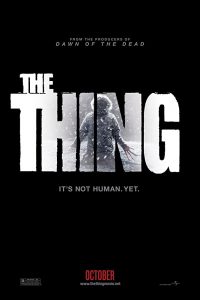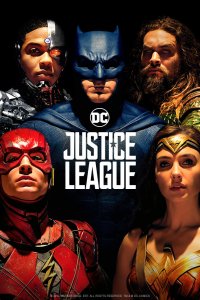2014: A Grand Ole Odyssey: A Review of Interstellar
by Gary Westfahl
Christopher Nolan’s Interstellar begins in a setting that should now be familiar to contemporary filmgoers, what I have elsewhere termed the Grapes of Wrath future: a world that has largely been driven back to the simple technology and impoverished lifestyle of America’s Great Depression. In this case, a changing climate and virulent blights are turning the world into an enormous Dust Bowl, forcing governments to pressure most of their citizens into becoming small family farmers (which, as a proposed solution to global famine, makes very little sense, but one could devote an entire review to listing the many things about this film that make very little sense). This recent fixation on one of the most difficult and disheartening periods of American history surely reflects a growing feeling that our formerly confident nation has somehow gone astray and is now destined to decline unless some dramatic action is taken. And one way to interpret Interstellar is as director Nolan and screenwriter Jonathan Nolan’s proposed solution to all of humanity’s pressing problems, one that has resonated throughout the history of science fiction: venturing into outer space in search of new homes and new resources. In the film, humans are even being prodded to do exactly that by unseen aliens who have helpfully created a wormhole to allow humans to reach habitable planets in another galaxy.
As a vehicle for their message, the Nolans have chosen as a template Stanley Kubrick and Arthur C. Clarke’s 2001: A Space Odyssey (1968), long accepted as not only one of the greatest science fiction films of all time, but one of the greatest films of all time, ranked number six on Sight and Sound’s current list. Since other filmmakers have made fools of themselves haplessly endeavoring to emulate this singular film’s magisterial grandeur (does anyone remember Brian De Palma’s Mission to Mars [2000]?), it requires considerable courage to make a film that, as I will argue, undertakes to both emulate and refute 2001: A Space Odyssey; and while I ultimately found its argument unpersuasive, the film is still provocative and, one might say, intelligently misguided in ways that are unfortunately rare in today’s filmmaking marketplace.
[ — editorial note: spoilers follow, including unannounced cast members –]
To be sure, it would be possible to berate Interstellar as a bizarre effort to transform the story of 2001 into suitable material for a typical country song. That is, one would retain the basic narrative: unseen, mysterious beings are seeking to assist humanity by creating a passageway to faraway worlds in the vicinity of Saturn (the original destination of the Discovery’s astronauts until Kubrick was told that his special effects people could not capably render Saturn’s rings, forcing him to instead feature Jupiter); an astronaut journeys through this wormhole past walls of bright lights and, after other adventures, finds himself isolated in a specially prepared chamber, where he has a transformative experience before being returned to Earth. But instead of a bland scientist like David Bowman, the hero would have to be a hard-drinking country boy, Cooper (Matthew McConaughey), who is motivated not by any intellectual desire to explore the cosmos and gain new knowledge, but rather wants to regain the love of his estranged daughter Murph (Mackenzie Foy, Jessica Chastain, Ellen Burstyn). And, instead of being changed into some weird fetus, he would have to come back to Earth just the way he was, to touchingly reconcile with his daughter and get on with his life by addressing the other issue on his mind, finding a new love to replace his deceased wife. Country star Mac Davis, author of the Elvis Presley hit “Don’t Cry Daddy” (1969), would have no trouble writing the lyrics.
However, if told that they were trivializing Kubrick’s epic quest by making it all a matter of fulfilling personal goals, the Nolans might respond defiantly that they were instead elevating and deepening the earlier film by adding the emotional element that Kubrick and Clarke had deliberately omitted in their story. As one character insists, it is the “yearning to be with other people,” family members and loved ones, that is “at the foundation of what makes us human.” (Forgive me if quotations are not exact; it’s hard to scribble down words in the dark without the option of reversing and replaying a DVD.) Trying to defend her determination to travel to a world where the man she loves is stranded, Dr. Amelia Brand (Anne Hathaway) bases her argument on physics, suggesting that human love must actually be one of the universe’s fundamental forces, and hence a trustworthy guide in making decisions. Such comments almost seem deliberately inserted into the screenplay to rebut anticipated complaints about the film’s mawkish sentimentality. Furthermore, while I will avoid being too specific about the film’s final revelations, the vastly powerful beings manipulating cosmic history, it turns out, are apparently people who are very much like us, with similar feelings and desires. Interstellar thus seems to agree with some of 2001’s original critics, like Ray Bradbury, who found Kubrick’s film to be empty because audiences could not care about its characters. By working overtime to create characters that audiences could care about, characters motivated by the same strong emotions that have always defined the human experience, the Nolans could say that they were making their space epic more real, more meaningful, more truthful about all of the things in life that genuinely matter.
But in this respect, I feel, the film is trying to have it both ways. On one hand, the Nolans are visibly determined to align themselves with science fiction’s traditional view that humanity, in order to grow and develop, absolutely, positively must travel into outer space. The film’s opening scenes explicitly criticize the world’s governments because, focused entirely on feeding their desperate citizens, they have foolishly abandoned space travel, even rewriting textbooks to insist that the Apollo moon landings were nothing more than an expedient hoax. After complaining that “We used to look up at the sky and wonder about our place in the stars; now we just look down and worry about our place in the dirt,” Cooper is heartened to discover that the United States government has secretly resumed its space program as the only possible solution to Earth’s deepening crises. The film is filled with stirring statements about the necessity of space travel: “we’re not meant to save the world; we’re meant to leave it.” “Mankind was born on Earth; we weren’t meant to die here.” “Our greatest accomplishments cannot be behind us, because our destiny lies above us.” Yadda-yadda-yadda, the film goes on and on, repeating the sentiment in a manner that exemplifies the modern filmmaker’s contemptuously low opinion of the intelligence and attentiveness of the average filmgoer.
And yet, and yet – what, according to this film, is the reason why humans must travel into space? To be with other people. To rediscover all of the feelings and emotions that have defined the human condition for the past millennia. To find a new world where we can continue to be the same warm, wonderful human beings that we have always been, and always should be. It is a vision of the future that is as homey and comforting as, well, most country music. Note that nothing is being said about venturing into space in order to find something new, something unknown, something that might inspire us or force us to change the way that we think and act. In other words, Interstellar is endorsing the lie that has long defined popular stories about outer space like the Star Trek and Star Wars sagas: that our future life in space is going to be exactly like our present-day life on Earth, with a few new machines and funny-looking aliens tossed into the mix. Only a few rare films, like 2001, have dared to contradict this lie, to suggest that space travel might redefine the human condition instead of affirming it. True, for those who still believe in the real possibility of a Star Trek future, this film can be defended, as previously characterized, as an unusually well-crafted argument in favor of its plausibility; but based on everything we have learned about the daunting realities of outer space in the past fifty years, I would still describe it as nothing more than an attractive fantasy.
What I found disappointing is that, for much of its length, Interstellar seems intent upon providing a genuine picture of just how difficult the conquest of space might be, even if one assumes the discovery of a convenient wormhole. To demonstrate how vulnerable people are in otherworldly environments, a brief battle between astronauts in spacesuits shows that the best strategy in such combat is to crack your opponent’s faceplates. When not traveling through space, Cooper and his crewmates visit three unusual planets being considered as humanity’s new home: one is covered with water, but beset by huge destructive waves; a second is very cold, with a generally unbreathable atmosphere; the third, briefly glimpsed, seems somewhat more hospitable but is visibly barren and uninviting. Yet, in describing the second world, scientist Dr. Mann (surprise guest star Matt Damon) says that it is “cold, stark, but undeniably beautiful,” suggesting that the struggle to inhabit such a planet might prove worthwhile and rewarding, perhaps to be illustrated by concluding scenes of hearty pioneers establishing their first colony. In the end, however, none of Earth’s people are going to be forced to migrate to such dauntingly alien worlds; instead, thanks to a bit of scientific magic (which the film does not explain very well, and which I will not even attempt to explain), it seems that everyone will be moving into space habitats, the huge rotating enclosures implausibly celebrated in 1980s science fiction as places where humans could recreate the lifestyle of nineteenth-century rural America in the middle of the void. Quite literally, then, the film’s humans will be traveling into space in order to get back to where they once belonged – a duplicate of Cooper’s family farm.
It is true that Cooper himself rejects this alternative in favor of a new voyage to another planet, though he goes by himself, suggesting that few people are going to make similar choices. And considering his actions, one might attempt to reconcile the film’s conflicting attitudes as a vision of a future humanity to be divided into two camps: a vast majority who will be content to limit themselves to places in outer space that are crafted to resemble Earth, and a few bold adventurers who will journey into unearthly realms. Still, most scientists long ago rejected space habitats as unwise and unworkable, so the film from this perspective may be predicting a choice that we will, in fact, be unable to make. Instead, unable to transform space into an environment like Earth, humans will either have to confront the demanding realities of space, or remain at home on Earth.
It will be obvious at this point that I did not particularly enjoy watching Interstellar; but there are several other films, ranging from The Rules of the Game (1939) to The Hitchhiker’s Guide to the Galaxy (2005) (review here), that I initially disliked but grew to cherish after watching them again and again, and Interstellar may well become another one. Certainly, based on previous achievements like his Batman trilogy (reviews of The Dark Knight [2008] here , and The Dark Knight Rises [2012] here) and Inception (2010) (review here), Christopher Nolan is not a director to underestimate, and there may well be nuances and undercurrents in this film that I have not yet appreciated. Even on first viewing, one can praise several aspects of the film, including its cleverly ambulatory robots, well-rendered alien worlds, and refreshingly unpredictable story. I anticipate, though, that this film will never become one of my favorites, in part due to two problems that are rarely in evidence in Nolan’s films: lousy casting, and lousy dialogue.
To explain my issues with the film’s stars – McConaughey and Hathaway – one might offer, as contrasting examples, the two-person cast of Gravity (2013) (review here). It is possible to project the attitude of an ordinary working Joe, and to show moments of vulnerability, and still convey to audiences that one is an intelligent, capable astronaut; George Clooney and Sandra Bullock did that very well. Yet McConaughey is so heavily into his I’m-just-a-country-boy shtick that anyone viewing this film must constantly mutter to themselves, “This guy can’t possibly be as dumb as he sounds.” As for Hathaway, while she was convincing enough as the earthbound Catwoman in The Dark Knight Rises, she consistently seems far too frail, both physically and emotionally, for the rigors of space travel. Clearly, if the two films had switched their leading players, the result would have been a weaker Gravity, and a more stellar Interstellar. Yet Nolan and casting director John Papsidera can be criticized for other decisions as well: as always, John Lithgow is mediocre as Cooper’s father-in-law; the normally reliable Michael Caine is far too relaxed and refined as scientist Dr. Brand, purportedly working feverishly to solve the equations needed to save the human race; and Jessica Chastain is so intent upon appearing distraught that she becomes inept when asked to be joyful, an emotion well expressed only by her doppelgänger Ellen Burstyn. Even the voices of the robots seem wrong, in contrast to 2001’s perfectly chosen Douglas Rain.
Turning to the dialogue, I have already noted that the screenplay is filled with suitable-for-framing profundities that jarringly sound like the screenwriters speaking to the audience, not one character speaking to another character; recurring quotations from Dylan Thomas’s portentous poem “Do Not Go Gentle into That Good Night” (1951) do not improve matters. But the worst thing about the dialogue is that there is far too much of it. One virtue of 2001 that none of its imitators ever emulate is its willingness to be quiet, as Kubrick kept cutting the dialogue to allow audiences to observe stunning visuals, while listening only to strange music, so they could think for themselves about what they were seeing. In contrast, one glaring weakness in the sequel to the film, 2010: The Year We Make Contact (1984), is that director Peter Hyams staffed his spaceship with a crew of chatterboxes engaged in constant conversation (including Lithgow, perhaps cast here as another nod to the film’s distinguished predecessor). Initially, Interstellar appears aware of the need to minimize dialogue when one crewmate says “We should learn to talk,” and the other responds, “And when not to.” Yet the film never heeds the advice in that rejoinder. This is particularly evident in the scene that corresponds to David Bowman’s interlude in the eighteenth-century drawing room, where he never says a word. But in the same situation, Cooper cannot keep his mouth shut, incessantly talking to himself, to a robot, and to a daughter who cannot hear him, striving to explain things that he might as well have kept silent about, since as noted none of it makes any sense anyway. To say that all this talking undermines the evocative power of this and other scenes should go without saying; imagine what 2001 would have been like if Bowman and Frank Poole had for some reason decided to bring along Andy Griffith to provide a running commentary on their adventures. (“Gol-oh-ly-gee, that gosh-darn computer is getting downright nasty.” “Gee willikers, them gosh-darn aliens musta made these here fancy digs just for us.”)
All things considered, one can say that the film’s repeated references to Murphy’s Law reflect a plot that involves, until its final deus ex machina, one thing after another going wrong. But they also may have been added because the Nolans were recognizing that, after a long string of successes, they were finally falling victim to that disheartening principle, as everything about a once-promising film was going wrong: its actors were proving ineffectual, its dialogue was ringing hollow, and its message was coming across as threadbare and trite. As I’ve said, in light of the Nolans’ track record, I’m willing to withhold final judgment for another occasion. But at the moment, I strongly suspect that, when they next vote in the year 2022, few if any critics will be choosing to add the passionate Interstellar to their lists of the greatest films of all time, and instead they will continue to prefer its bracingly cold and unemotional precursor.










Yes, infuriating. Worse than you say, because shipping the human race to other planets is an impossible solution. You couldn’t save 0.01 percent of the population because of the cost, and why would the remaining 99.99 percent pay that cost when they will be left behind?
Space habitats are also no solution, again due to cost. If the Earth is exhausted, how are we going to build all those gigantic habitats and boost them into orbit anyway? And if you can maintain a population in orbit (producing food, water, manufactured goods), why can’t you do the same thing on the ground?
Space exploration isn’t about acquiring resources or lebensraum, it’s about exploration. Duh.
An interesting review in its own right (haven’t seen the movie and may not). Small nitpick: The title of Peter Hyams’ 1984 movie (based on Clarke’s novel 2010: Odyssey Two) is simply 2010. The “Year We Make Contact” phrase, from posters and home video packaging, became the de facto subtitle over the years (similar to what happened with Die Hard 2 and X2, which gained the de facto subtitles Die Harder and X-Men United, respectively) but none of these are in the actual movies themselves.